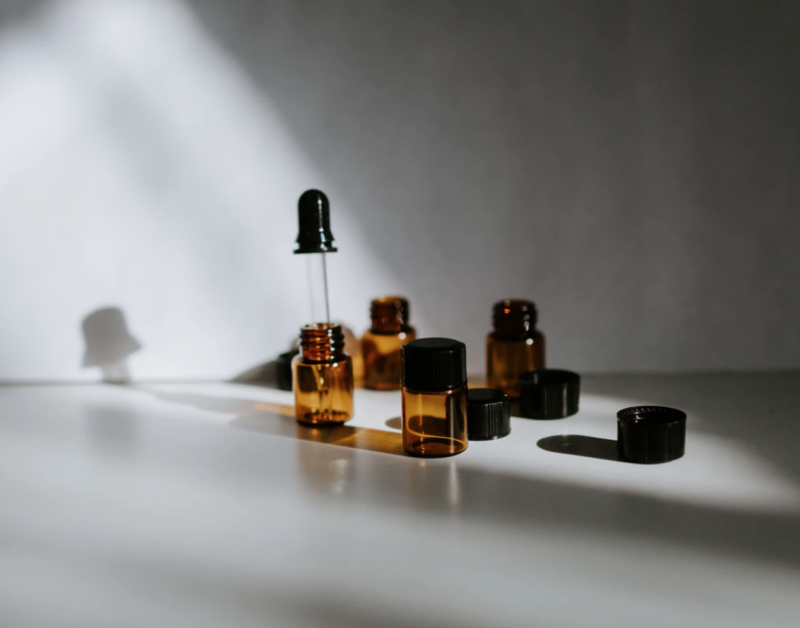The debate about the supposed benefits of CBD has fueled more and more clinical trials in recent times. Cannabidiol, or CBD, has become this decade’s biggest buzzword and has been generating great interest from well… just about everyone! But what exactly is CBD? And what are the most common misconceptions surrounding the drug?
First things first, what exactly is CBD?
CBD, short for Cannabidiol, is a cannabinoid found commonly in marijuana and hemp plants. Cannabidiol is a naturally occurring substance in cannabis plants that is not psychoactive. This means that CBD or any other CBD products would not give you the induced euphoric feeling or the “high” often associated with using cannabis plants. Although considered a mood-altering substance, CBD will never give you the same intoxicating feeling that you get from products with THC or delta-9-tetrahydrocannabinol.
Now that CBD is gaining more and more traction in the media, it’s easier to spread false information about its alleged effects. In this article, TheGetWell will walk you through eight common myths and misconceptions about CBD.
1. CBD gets you high
As mentioned earlier, it is a common misconception that CBD gets you high. While it is true that CBD does not make you high as THC does, CBD has indicated antipsychotic, anxiolytic (anti-anxiety), and antidepressant properties. The key difference between THC and CBD is that CBD is non-intoxicating. This means that the use of CBD can greatly alter your mood while keeping your judgment unimpaired.
2. CBD has no scientific backing
False! The United States Food and Drug Administration (FDA) has actually already approved a CBD-based drug called Epidiolex. Epidiolex is used in the treatment of Dravet syndrome (DS) and Lennox-Gastaut syndrome (LGS). Both DS and LGS are types of epilepsy that occur in childhood and can now be treated by Epidiolex.
While it is true that controlled clinical trials for CBD are still not enough to properly conclude its benefits, it doesn’t mean that CBD cannot be helpful in treatments. CBD has been found to benefit people experiencing chronic pain, anxiety and depression, and even sleep disorders. CBD has also been found to work hand-in-hand in cancer treatment as it has been found to boost the appetite of patients as well as help them in sleeping better at night to prepare for upcoming cancer treatments.
3. CBD is ILLEGAL
CBD IS legal. In 2018, the Agriculture Improvement Act of 2018 (also known as the Farm Bill) legalized hemp-derived CBD that contains no more than 0.3% THC. However, it gets confusing at the state level. For example, some states would only let you buy CBD if you have a prescription.
In a statement by the U.S. FDA, it says that the department recognizes the significant public interest in cannabis and cannabis-derived products, particularly CBD. In addition, the FDA is also working on answering the questions surrounding CBD as the demand for CBD continues to increase. If you’re unsure about whether or not CBD can be bought over the counter or without a prescription in your state, do your research! It pays to have enough know-how about these things so that you wouldn’t get into trouble.
4. CBD shows up in a drug test
It’s highly unlikely that CBD will show up in a drug test. CBD is, contrary to popular belief, isn’t being used recreationally as much as THC is. CBD, as mentioned above, is known for treating different types of illnesses. In addition, a drug test most likely screens for traces of THC rather than CBD.
According to Healthline, Cannabidiol shouldn’t show up on a drug test. However, people need to be wary about the types of CBD products that they use as some CBD products may contain trace amounts of THC. If enough THC is present, it may show up on a drug test.
5. CBD makes you lazy and lethargic
In some clinical trials, CBD has been found to have anti-anxiolytic properties used to treat anxiety and depression. This means that CBD has the power to alter your mood and provide you with a calming or soothing feeling. However, claims about CBD making you lazy and lethargic do not have any scientific proof. In some instances, CBD users even claim that taking CBD has helped them gain more focus on the tasks they are set out to do. Keep in mind though that CBD will have a different effect on each person that uses it as we have different chemical compositions in our bodies.
6. You can easily become addicted to CBD
We cannot stress this enough– CBD is not habit-forming. The simple answer to the question “Can I become addicted to CBD” is no. THC-containing CBD products is another story however as THC has been found to develop an addiction in some people. CBD, being a non-intoxicating substance, does not contain any type of addictive substance that points to it being abused by its users. In addition, a 2011 study in Addictive Behavior found that CBD users are able to curb addictive behaviors such as cigarette smoking and alcohol consumption.
7. CBD is only for people with chronic pain
While CBD can definitely help people experiencing chronic pain, that isn’t it’s only function. Like we said above, CBD will also help with your anxiety, depression, sleep disorders, aid in cancer treatment, as well as help treat severe types of epilepsy. CBD can also help you develop an appetite, help you focus, soothe aches, and even aid in some types of eye diseases. Health.com has also put out a great article about the supposed benefits of CBD oil. One interesting benefit discussed in the article is CBD in skincare products as well as CBD products used to treat autism.
In the article, a dermatologist from New York City has found that CBD is a rich source of fatty acids. Fatty acids and other skin-healthy nutrients improve skin hydration as well as minimize moisture loss in the skin. Moisture loss can lead to the development of acne and other skin disorders. On the other hand, CBD in treating some forms of autism has been ongoing research in the alternative treatment field. An article published in the National Library of Medicine National Institutes of Health has extensively talked about the oral use of cannabidiol (CBD) in treating related symptoms of children with an autism spectrum disorder.
The study focused on 53 children with a median age of 11. See the results of the study below:
- Self-injury and rage attacks improved in 67.6% and worsened in 8.8%
- Hyperactivity improved in 68.4%, did not change in 28.9%, and worsened in 2.6%
- Sleep problems improved in 71.4% and worsened in 4.7%
- Anxiety improved in 47.1% and worsened in 23.5%
The conclusion of the study suggests that cannabidiol may improve autism spectrum disorder but needs to be evaluated in larger-scale studies to determine its long-term effects.
8. CBD is for human consumption only
Did you know that a man’s best friend contains the same endocannabinoid system that we humans do? This means that CBD can be used for your pet as well! Keep in mind, however, that you need to first consult your veterinarian to determine the proper dose for your best friend.
An article by CNET quotes a 2017 World Health Organization report that claims CBD, in its purest state, appears to be safe and well-tolerated by animals. CNET also advises pet parents to be careful and avoid potentially harmful ingredients in their CBD-based canine products. One way to avoid your pet getting hurt is to look for a certificate of analysis or COA. A COA is issued when an independent lab tests the product to confirm its ingredients and potency, among other things.

